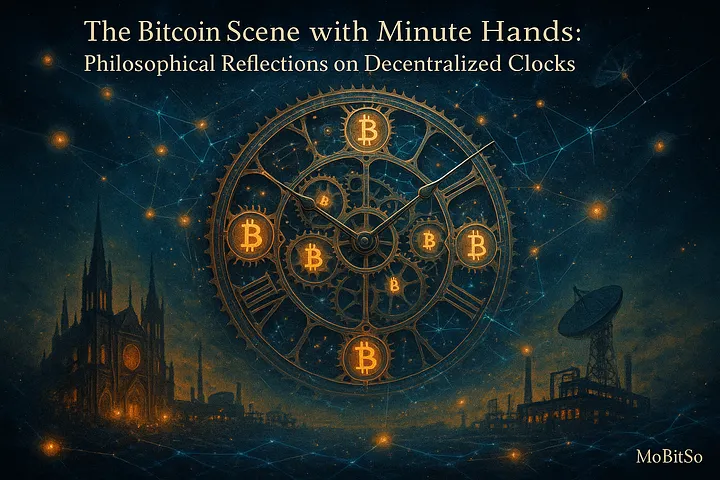Time has always been political. Long before it was mathematical, it was theological. The first clocks were not built for science, they were built for power. In the Middle Ages, when the cathedral bell told peasants to pray, to work, and to rest, it was a matter of time. In the age of industry, the factory whistle took the place of the church bell, and time became productivity. The calendar became capitalism.
Every civilization guarded its own clock. Empires have risen and fallen with the grace of their timekeeping. Whoever measures time effectively organizes society; therefore, whoever organizes society controls it. Time zones, leap seconds, and daylight saving are all manifestations of negotiations between physics and politics.
Bitcoin was birthed to disrupt this silent monopoly. It created a clock that neither hangs in a palace nor orbits on a government satellite. Its seconds are not appointed by decree, but discovered by consensus- one block at a time. An uncontrolled global heartbeat is ticking.
Time in Bitcoin is emergent. Each block stands for about ten minutes of computation — not imposed, but composed by agreement. Each miner, node, and participant serves as a metronome for this mathematical ensemble. The honesty of the network is measured; obedience does not hold much value.
A revolutionary thought. Established systems rely on trusted authorities to define “when.” The Gregorian calendar came from the Vatican. The Coordinated Universal Time (UTC) is defined by atomic clocks held in national laboratories. But Bitcoin’s clock works without trust. It is a level playing field of machines that keep their own imperfect watches while somehow coming to an agreement upon a united incorruptible timeline.
Block time is pretty bad, and there lays its brilliance. It wanders and hiccups, then self-corrects. It is biological rather than mechanical. The network behaves like a living thing: resilient, self-healing, evolving. That is, in Bitcoin life and time are considered.
Whether prophet or programmer, Satoshi Nakamoto did not create a mere payment system but invented a new philosophy of time. In the fiat world, time is linear, and centrally managed; a marching parade of seconds. In the world of Bitcoin, time is emergent and decentralized; a mosaic of moments that reach consensus through proof of work.
Each block is an act of defiance against temporal authority. It says:
“Here is the present, certified by energy, not hierarchy.”
When historians of the future investigate the early digital period, they may discover an intriguing rupture within humanity’s record of its own story. Human history used to be recorded in terms of reigns and empires — the age of Augustus, Victorian times, the American century. Today, we record it in terms of blocks. Block 857,000. Block 857,001. Each a timestamp of collective agreement, a record of truth that cannot be edited by kings or committees.
Through many twists and some poetry, Bitcoin has become the most honest historian we have ever built: it writes only what happened; never writes what should have happened. Its memory is incorruptible because nobody owns it.
So, when we talk of decentralization, we often associate it with power, money, or data. But then came the temporal revolution. Bitcoin did decentralize time itself. It freed the clock from the cathedral, the factory, and the state.
To live in a Bitcoin world is to live in a time without kings,
a time written not through decree,
but through consensus,
a time that belongs to no one,
and thus, finally,
a time for everyone.








